Join us on our journey towards renewable energy excellence, where knowledge meets innovation.
With Europe’s energy transition accelerating, grid stability has become increasingly important due to the growing integration of renewable energy sources like wind and solar. These sources, while critical for decarbonisation, are inherently variable, making it challenging to balance supply and demand in real-time. To address this, European energy regulators and Transmission System Operators (TSOs) have established several cooperative initiatives to ensure grid stability and resilience. Key projects in this regard include FCR Cooperation, PICASSO, MARI, and TERRE, each focusing on different aspects of the ancillary services market.

Pan-European Cooperation in Ancillary Services
Ancillary services provide essential support to maintain grid frequency, they are vital for responding to sudden imbalances caused by fluctuations in renewable energy output or unexpected changes in demand. Traditionally, each country managed its ancillary services market independently. However, with the integration of cross-border energy trading and the goal of a single European energy market, regional cooperation has become necessary.
This desire to integrate AS markets became ingrained in EU policy when it published the Electricity Balancing Guideline (EBGL) in 2017. It aims to integrate electricity markets across member states by standardising rules, fostering cross-border cooperation, increasing competition and supporting renewable energy. To achieve this, the following platforms were developed.
1. FCR Cooperation
The FCR Cooperation initiative addresses Frequency Containment Reserve (FCR), the first line of defence in frequency control, activated within 30 seconds to stabilise frequency. The FCR Cooperation, launched in 2017, seeks to create a unified market for FCR across several European countries.
The project currently involves 12 TSOs, operating a shared market for procuring FCR. These are the TSOs from Austria (APG), Belgium (Elia), Switzerland (Swissgrid), Germany (50Hertz, Amprion, TenneT DE, TransnetBW), Western Denmark (Energinet), France (RTE), the Netherlands (TenneT NL), Slovenia (ELES) and Czechia (ČEPS). This collaboration forms the largest FCR market in Europe, accounting for about half of the total FCR demand in continental Europe.
The participating TSOs pool offers from Balancing Service Providers (BSPs) and conduct daily auctions for next-day delivery. This system gives BSPs access to a larger market for their services, benefiting end users by driving down energy costs. Auctions, which initially covered full-day products, now feature four-hour intervals, enabling more precise market signals. This change allows energy demand and prices to react more dynamically to real-time conditions.
TSOs collaborate in a TSO-to-TSO mode within this framework, enabling cross-border cooperation while maintaining operational control over their national markets. Offers from BSPs are organised into a common merit order list for efficient selection. Despite the collaborative structure, the interaction between TSOs and BSPs, including contractual agreements and delivery responsibilities, remains managed at the national level, with each TSO overseeing its own country or control area.
The platform uses a uniform pricing system where payments are made based on the amount of capacity (EUR per MW) contracted. Providers offer a fixed volume product for four-hour blocks with symmetrical regulation capability. The price itself is determined through the "pay as cleared" mechanism, which means all participants pay the same price for the capacity they secure, which is determined by the highest bid needed to match supply and demand. As a result, everyone who successfully secures capacity will pay the price of the last accepted bid in the market, regardless of their individual bids.
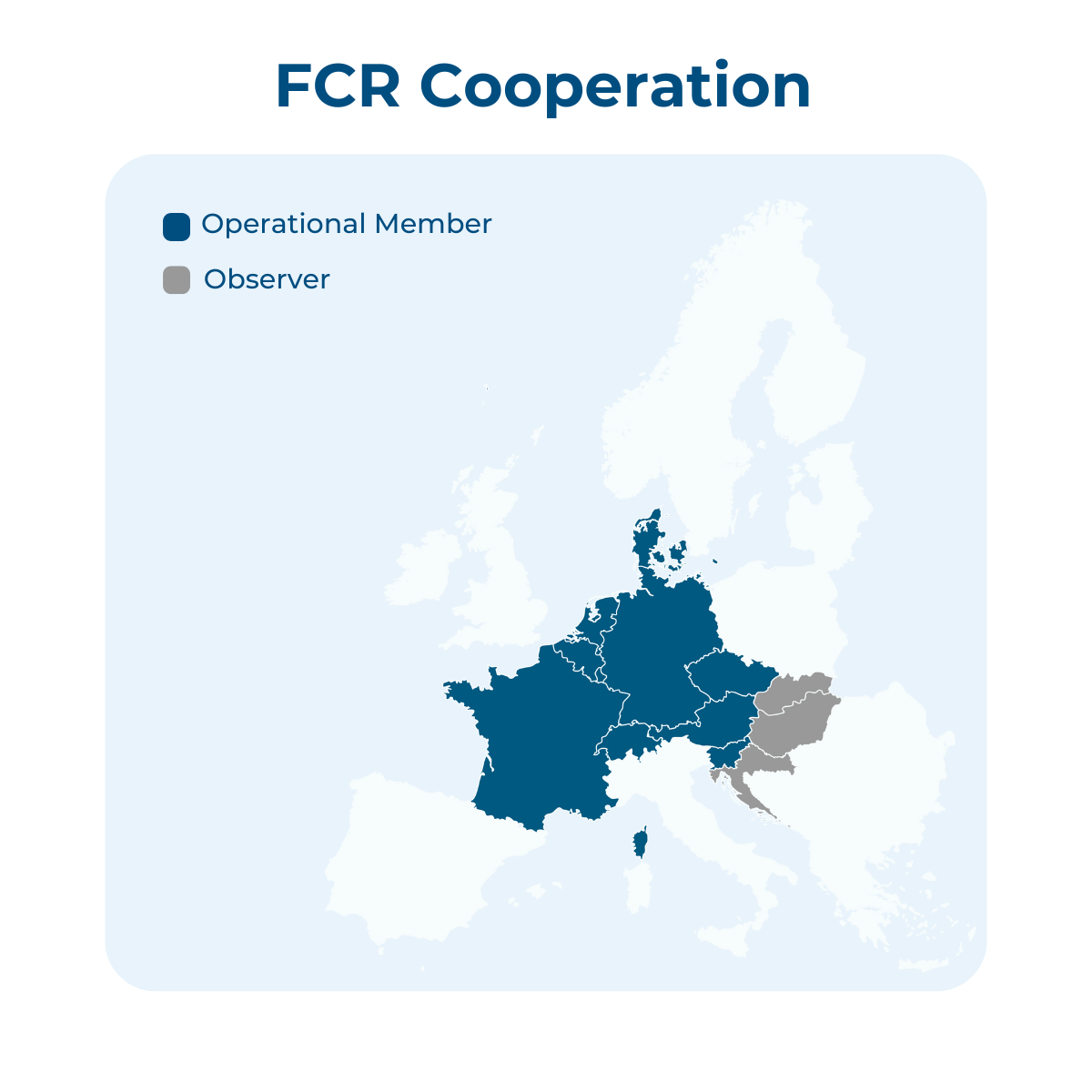
2. PICASSO
PICASSO, the Platform for the International Coordination of Automated Frequency Restoration and Stable System Operation, is an initiative focused on coordinating automatic Frequency Restoration Reserves (aFRR) across Europe. aFRR is essential for managing real-time frequency deviations to maintain grid stability, adjusting power output within 7.5 minutes. Launched on June 1 2022, PICASSO currently includes 16 fully operational member countries. There are also 10 non-operational members working towards integration, and 1 observer country which is expected to become a member after a three-month waiting period.
PICASSO incorporates a standardised aFRR product with a duration of 15 minutes, synchronised gate closure times, harmonised pricing and a unified merit order list, Pricing is based on the amount of energy (EUR per MWh) and is determined through the pay as cleared mechanism. BSPs wishing to participate in the market can submit separate bids for upward or downward regulation, as each direction of regulation is treated as a distinct product. The platform also has technical requirements, including a target to reduce ramp-up speeds from 7.5 to 5 minutes by December 2024.
Ancillary service providers (ASPs) participating in PICASSO each send their control energy tenders to their respective TSOs for the upcoming quarter-hour. Each TSO then transfers these tenders, along with its control energy demand and available cross-border capacity, to the common LIBRA optimisation platform. LIBRA determines the most economical way to meet the control energy demand of all participating TSOs and sends the results, accepted tenders and covered energy demand, back to the relevant TSOs. Each TSO then activates the accepted tenders from their ASPs.
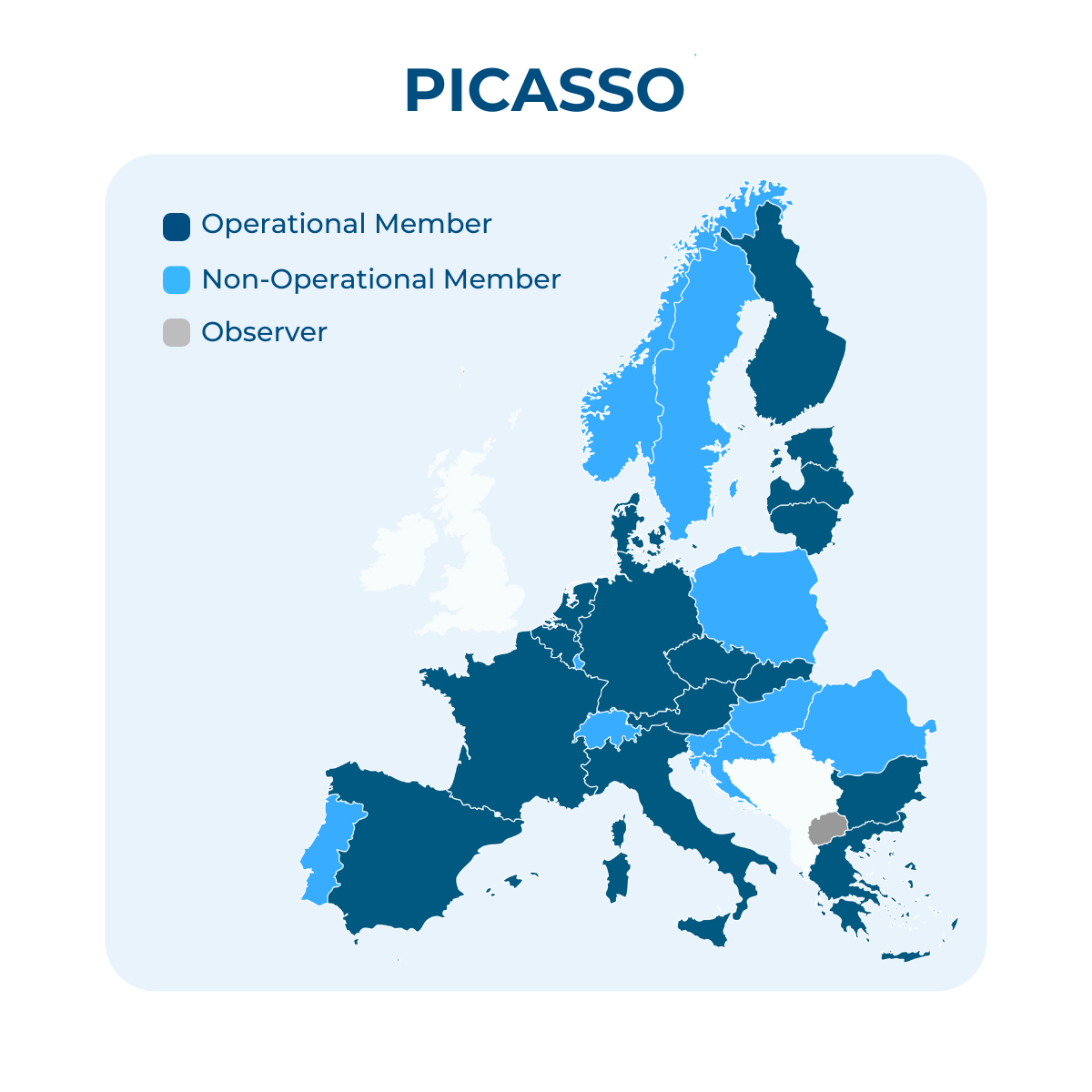
3. MARI
The MARI project targets the manually activated Frequency Restoration Reserve (mFRR) market, used when automatic reserves are insufficient for grid balancing and activated within 12.5 minutes. Currently, MARI involves 10 operational members, 14 non-operational members, and 3 observer countries.
Like the other platforms it has features like standardised products, harmonised gate closure times and a unified pricing structure. The pricing is based on the amount of energy (EUR per MWh) and is determined through the pay as cleared mechanism, following the same product distinction for upward and downward regulation of PICASSO. The time resolution is also similar to PICASSO, namely 15 minutes.

4. TERRE
The Trans-European Replacement Reserves Exchange (TERRE) project has been operational since October 2020 and is designed with an activation time of up to 30 minutes. It facilitates the cross-border exchange of Replacement Reserves (RR) to address longer-term grid imbalances.
TERRE currently includes 4 operational member states, 3 non-operational members, one observer, and three former members. In addition, 3 TSOs are TERRE project members: Amprion, Statnett and Svenskä Kraftnät. The project members joined solely to participate in the development and management of the IT solution (LIBRA software) and obtain intellectual property rights for it.
The pricing process of the energy activated, consisting of pay as cleared, and 15 minute activation resolution is similar to that of PICASSO and MARI.

Conclusion
The FCR Cooperation, PICASSO, MARI and TERRE projects are critical to Europe’s energy future, driving the creation of a unified and flexible electricity market. As the energy transition accelerates, these platforms will be essential in maintaining stability, optimising resource allocation, and ensuring a sustainable, renewable-powered future for Europe.
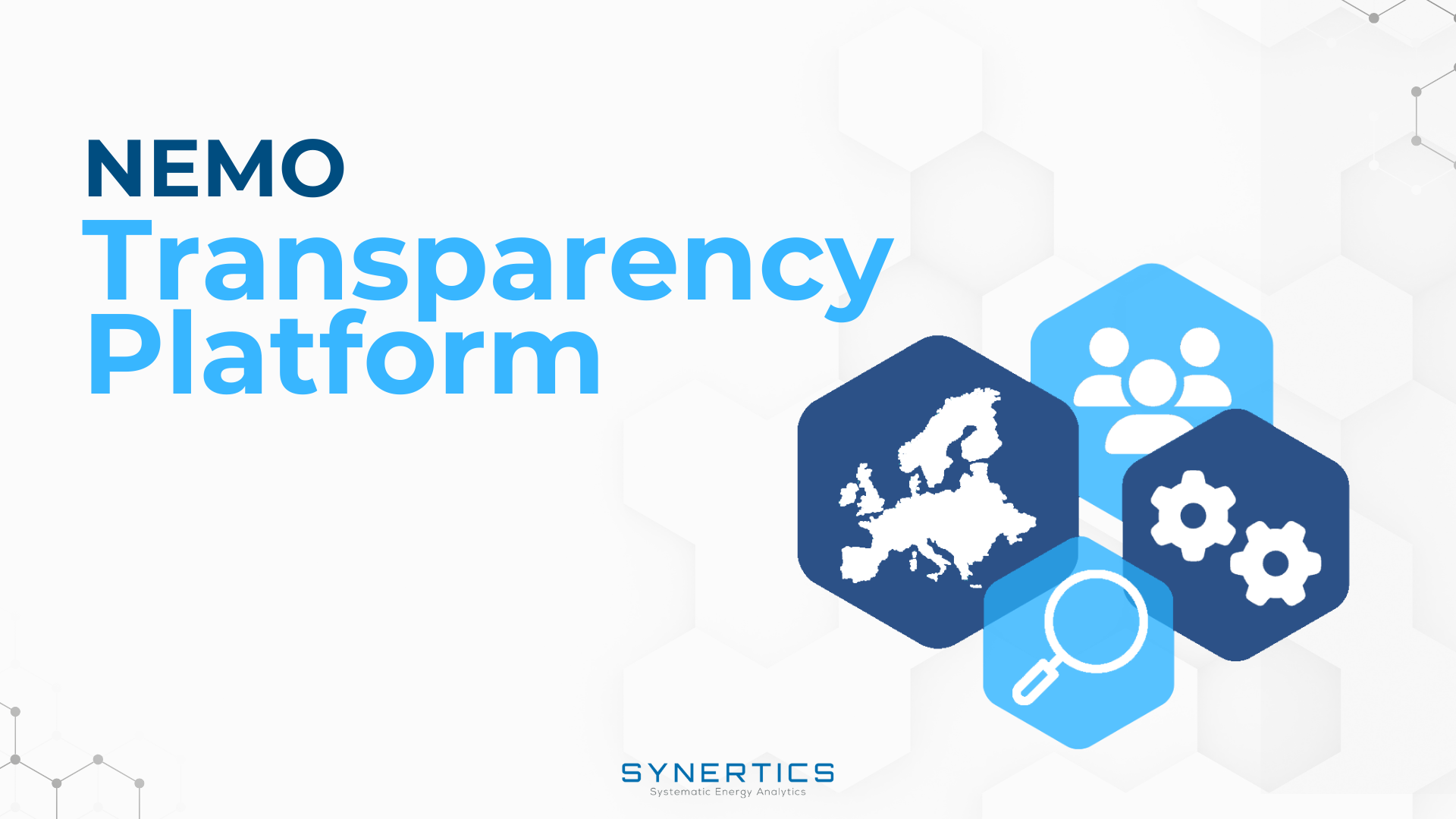
Insights
22nd Jan, 2026
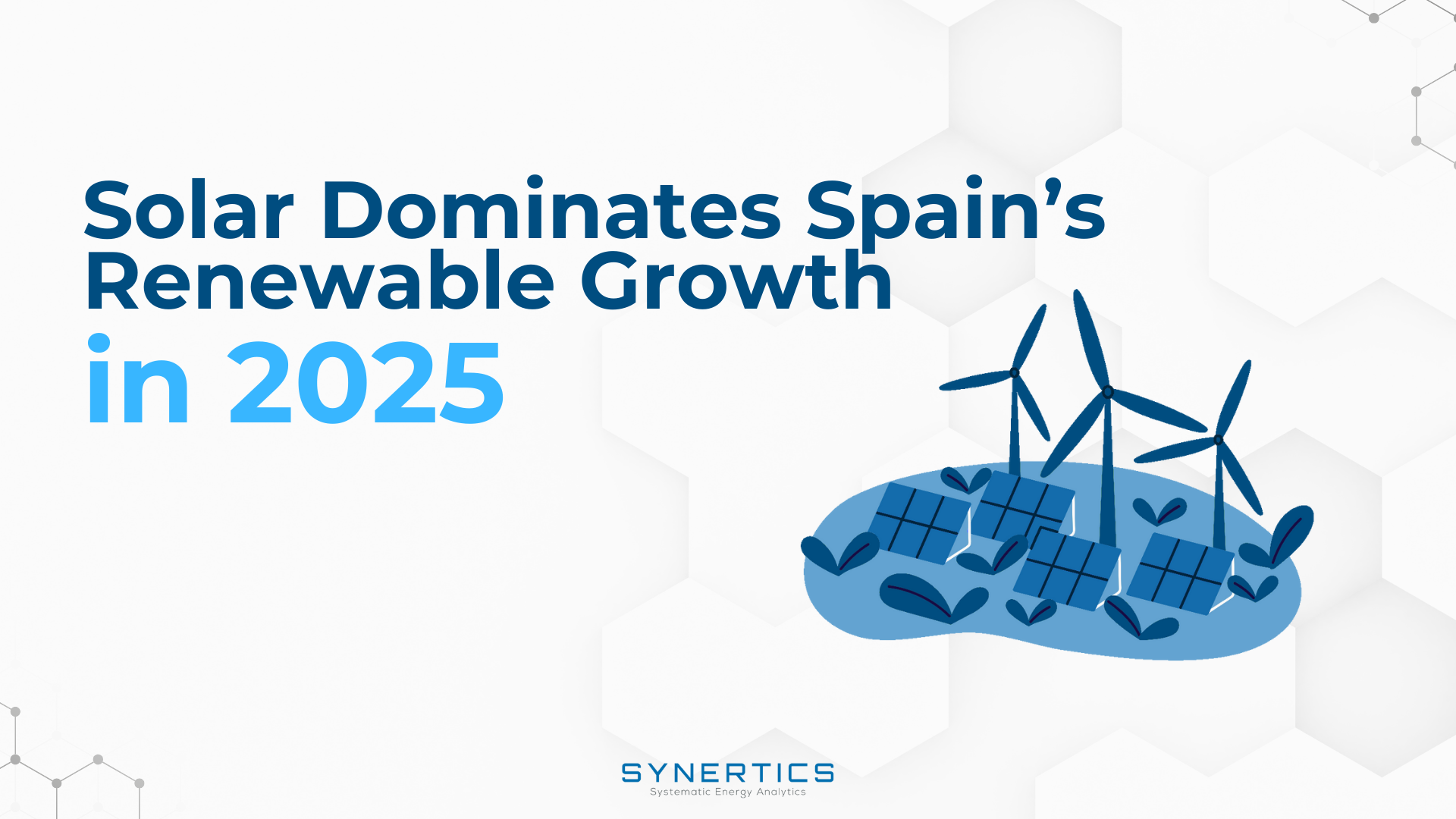
Insights
12th Jan, 2026
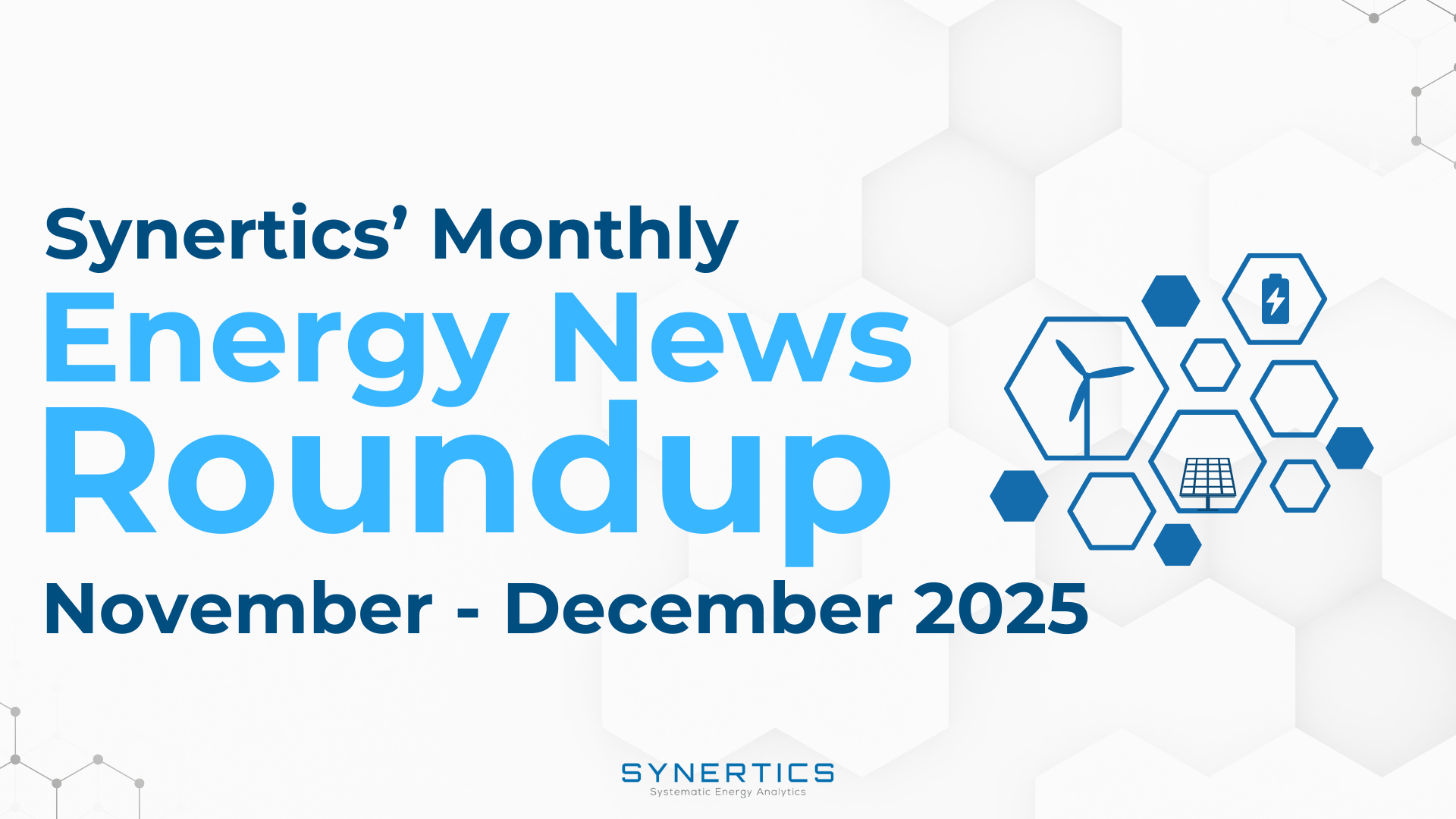
Insights
12th Jan, 2026